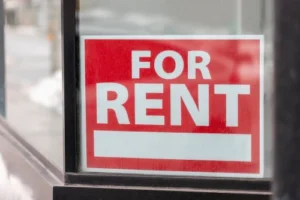Paying Too Much For Insurance?
Get a FREE quote to insure your rental properties for less.
Additional Living Expenses
Policies also provide financial protection against liability claims and additional living expenses (ALEs). Policyholders are covered against lawsuits for bodily injury or property damage done by the renter, their family members, and pets. It also covers legal defense costs up to the limit of a policy. Additional living expenses coverage provides financial protection against an insured disaster that makes it necessary to temporarily live somewhere else.
The coverage pays for hotel bills, temporary rentals, meals, and other costs while a rental home is being repaired or rebuilt. Most policies reimburse the insured for the full difference between the additional expenses and their normal living expenses. There is, however, either a dollar limit on the total amount an insurer will pay or a time limit on the ALE payments.
Renters Insurance and Valuation
Renters can choose between replacement cost value (RCV) or actual cash value (ACV) coverage. The type of coverage for each policy may be substantially different based on how the policy calculates the value of what was lost.
If you have an ACV policy, the insurance company will reimburse you for the value of your belongings at the time of the loss, taking into account depreciation and wear and tear. For example, if your five-year-old laptop gets stolen, the insurance company will consider its current market value, which will probably be significantly lower than the original purchase price. As a result, the payout under an ACV policy might not be enough to replace your belongings with new items.
If you have an RCV policy, the insurance company will reimburse you for the cost of replacing your belongings with new items of similar kind and quality, without considering depreciation. In the same example of the stolen laptop, an RCV policy would provide the funds needed to purchase a new laptop with similar specifications to the one that was stolen, even if the cost exceeds the value of the depreciated laptop.
Proof of renters insurance is required by many landlords. Without this coverage, the tenant is responsible for the loss out of pocket.
Renters Insurance vs. Landlord’s Insurance
Renters insurance is designed to protect tenants or renters. It covers the personal belongings and liability of the tenant. If a covered event such as theft, fire, or water damage damages or destroys the tenant’s personal property, renters insurance can provide compensation for the loss.
Landlord’s insurance, also known as landlord insurance or dwelling insurance, is designed to protect the property owner or landlord. This insurance policy covers the physical structure of the rental property, such as the building, roof, walls, and fixtures. It also provides liability coverage for the landlord if a tenant or visitor is injured on the property and holds the landlord responsible.
The important takeaway here is that landlord’s insurance does not cover the personal belongings of the tenants. Personal belongings of the tenant are the responsibility of the individual tenants through their own renters insurance.
Make sure your renters insurance policy includes no-fault medical coverage as part of the liability protection, which allows individuals who are injured on your property to submit their medical bills directly to the insurance company in lieu of a lawsuit.
Renters Insurance vs. Other Policies
Although most renters insurance policies cover losses from fire or smoke, lightning, vandalism, theft, explosion, windstorms, and certain types of water damage, the majority don’t cover floods or earthquakes.
Flood insurance is available from the National Flood Insurance Program and a few private insurers. Earthquake insurance may be purchased separately or added as an endorsement to an existing renters policy. For example, in California—obviously a high-risk state for earthquakes—the legislature created the nonprofit California Earthquake Authority to help people get affordable coverage.
The Bottom Line
Renters insurance is a policy that protects tenants’ personal belongings and provides liability coverage. It safeguards against financial loss due to theft, fire, or other covered events and offers liability protection if someone is injured in the rental unit. Though not always required, it is coverage that is needed by renters as landlord policies do not cover tenants’ personal belongings.
Source: Investopedia














 Accessibility
Accessibility